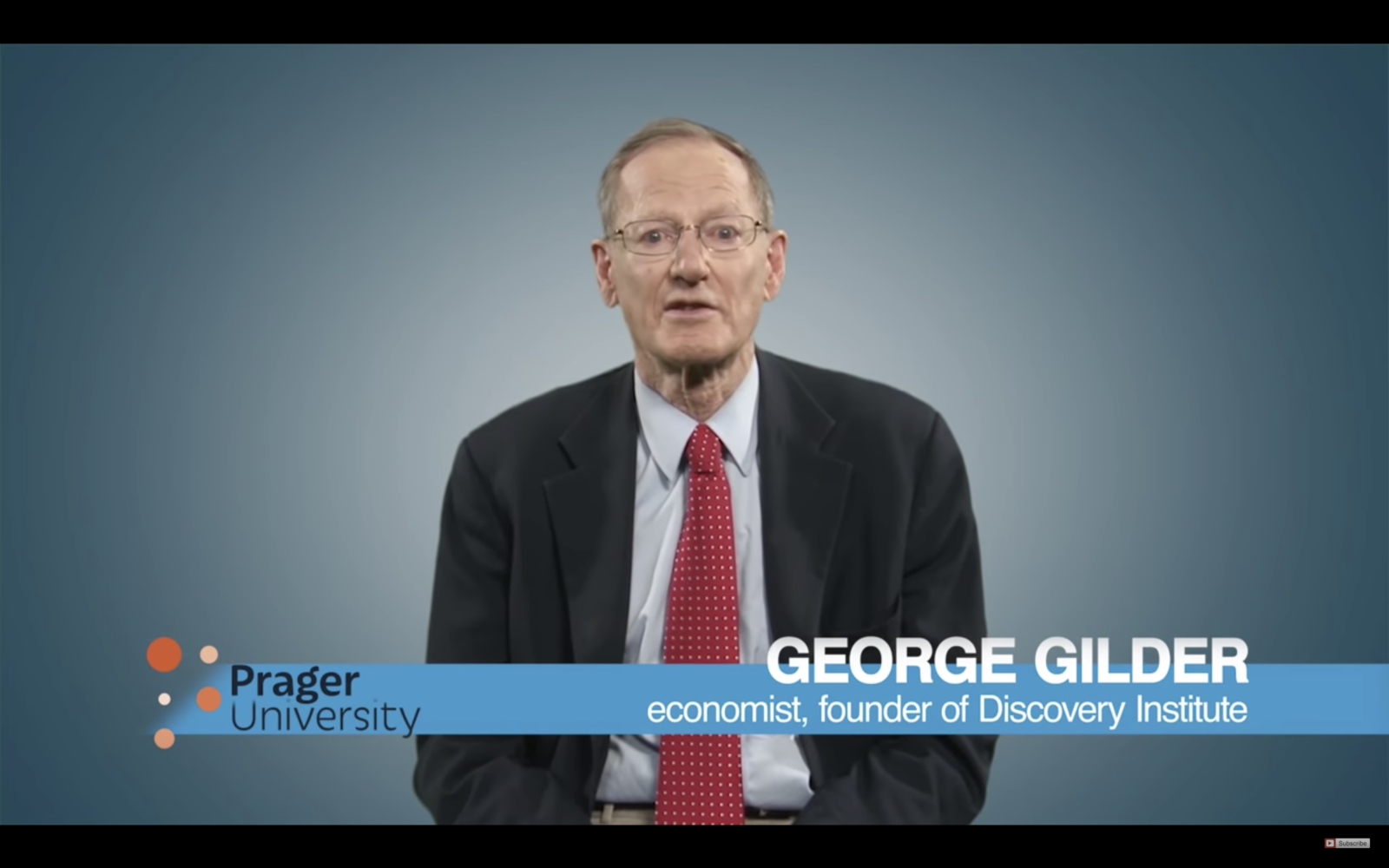
George Gilder for Prager University: What Creates Wealth?
The latest course from Prager University features George Gilder explaining why some countries are wealthy and flourishing, while others are poor and stagnant. This topic has been long debated–with scholars offering explanations based on culture, government, geography, history, and more–but George Gilder looks to the core of the issue, arguing that what matters most for dynamic economic growth is knowledge. Read More ›